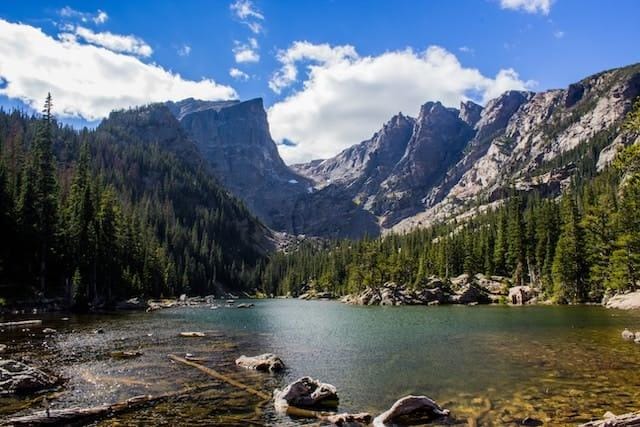Paul. A.Mugarura
In one of his documentations, a renowned British conservationist and nature researcher, Sir David Attenborough, asserts that: ‘the natural world is changing and we are dependent on it”. David (now 96) has spent a better part of his life traversing different parts of the earth, taking stock of its rich flora and fauna. He is one of the world’s greatest well-rounded conservationists, moving the face of the earth today with vast experience across the globe.
On following through any of his various publications, one is left awe-struck and shocked in equal measure and convinced that we are all duty-bound to wake up (we are already slightly late) and take up the frontline mantle to restore & protect what has remained of our nature given paradise and its beauty. We must (Without fail) work towards saving man’s only planet that we have known and destroyed over the years.
Without resolve, the present is doomed, and the future will forever curse. Sir David says: “we must rewild the wild”. He observes that the wild is no longer wild by giving vivid reasons for human-indused loss. On the hand, a recent report of the United Nations Convention to Combat Desertification indicates that 70% of the earth’s land has been altered. This report further suggests that it leaves us on “crisis footing’.
While the reasons why all nations and their citizenry ought to wake up and positively respond to the call of environmental protection cant be over empasized, the benefits can’t be exhaustively enumerated(at least not here),I entirely agree with David’s cautionary message. We badly need this natural phenomenon for survival.
Its beauty inspires, and we shall forever depend on its vast resources today and tomorrow as a civilization. From the all-lonely Masai herdsmen in deep rural Africa to the Boardroom Executives in the palatial skyscraper offices anywhere in the advanced worlds, all depend on mother nature in one way or another.
Nature’s well-being and sustainable environmental use directly impact man’s public health anywhere. Man’s basic needs in terms of water, fresh air, food, security, and wealth are all linked to nature. We need to protect, conserve and restore it.(without fail)
Sustainable use of our only planet’s natural resources is necessary, and this too, cannot be over-emphasized or even can I attempt to exhaust it.
It can avert climate change and its negative effects. As global temperatures and sea levels rise, more heat waves, droughts, floods and wildfires result. These make it hard to grow food and those hungry to get access to it. UN reports show that agricultural production has negatively dwindled by 34% due to climate change more than ever.
Global food security is at risk.This modern-day apocalypse is largely linked to the negative effects of climate change that have gained regular occurrence, the covid 19 pandemic and the Russian-Ukrainian war that have distorted global food supply chains.
As of February 2023, a World Bank report indicates that over 200 million people face emergency and famine globally. The survey further shows that 42% of households across all countries covered are unable to eat healthy or nutritious food in the previous 30 days.
This food security crisis shall negatively affect global economies by increasing the public debt burden, causing inflation and possibly a recession risk.
In my home country Uganda, the need to be more environmentally conscious is urgent and should be on top of the national agenda. The lost pearl of Africa is fiercely embarking on an ambitious oil exploitation expedition of its recently discovered oil resources around the Albertine area in the western part of the country.
The project will also involve the construction of a heated oil pipeline. The EACOP, which is 1,443km long shall transport the waxy crude oil all the way to Tanga port on Tanzania’s Indian Ocean side. The EACOP and its associated infrastructure is bound to offset a lot of environmental and social issues in case of non-compliance with set global net-zero emission targets, national environmental laws, regional protocols and international treaties.
The pipeline shall go through large conservation areas with rich biodiversity. It shall run through game parks, reserves, rivers, Lake Victoria shores, indigenous peoples’ lands etc. I am also thinking about the fate of wild beasts in their millions that have freely grazed in the proposed oil pipeline corridor for centuries.
Where shall they go? Won’t they starve and become extinct? I am thinking about the project-affected persons, the poor fishing communities around Lake Albert and Lake Victoria that shall be displaced to pave the way for the project. Shall they retain their livelihood or even get fair-value compensation? All these are at stake if the Oil projects are not well managed and environmentally audited.
The good news is that the number of countries that have ratified the Paris Agreement on climate change has reached 179 since 2016. Another plus is that Tanzania and Uganda are parties to the Paris Climate Change Agreement, which aims to limit global warming to well below 2, preferably 1.5 degrees Celsius.
If well committed, this will go a long way to curb global carbon emissions and climate change. As we celebrate the remarkable Paris Agreement, countries need to act on their financial pledges to help the world adapt to climate change. (especially those in the global south). Sir David Attenborough in one of his documentations, says that; ‘if we take care of nature, nature shall take care of us” and I would add nothing much to his call than simply saying: Mother nature is us, let us protect her.
Paul. .A.Mugarura (mugapol200@gmail.com) Paul is a Law Scholar at Nkumba University Entebbe & Research Associate @Angeret Co. Advocates. Plot 38 Lumumba Avenue.






















Discussion about this post